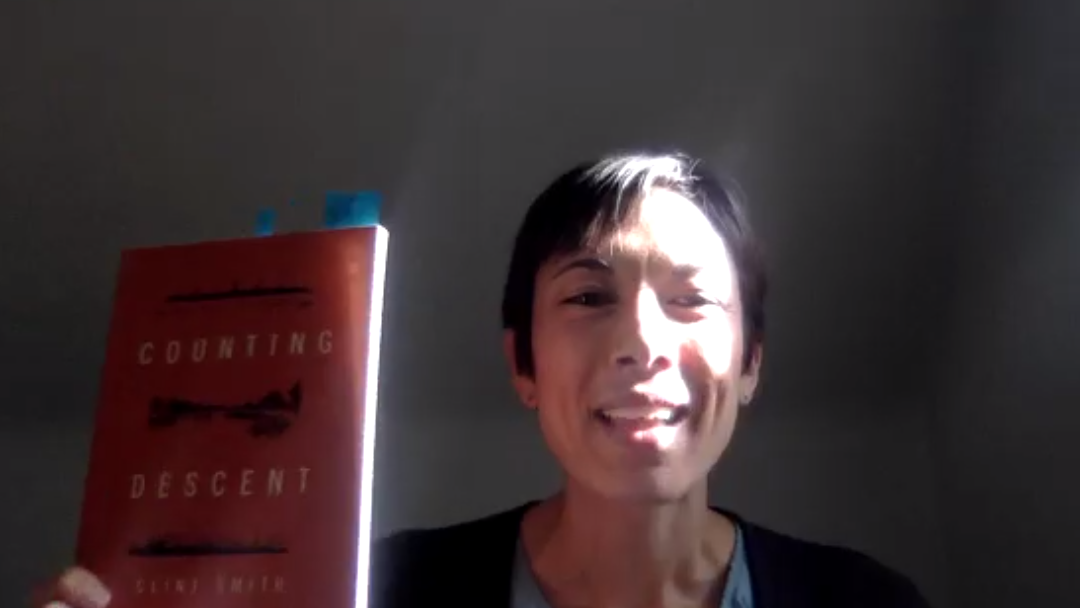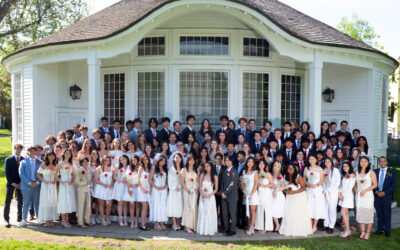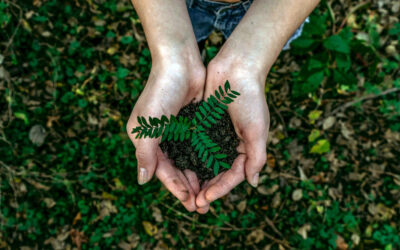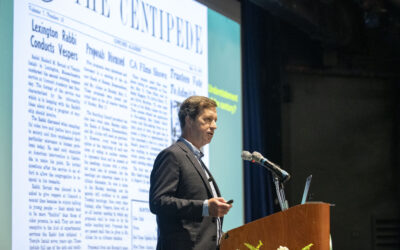
Thank you and good morning, Rick. Good morning, Fay and Zahaan. Good morning to all of you, board of trustees, staff, faculty, and students. It is lovely to feel your presence with me today. As I open my remarks and, in so doing, open the school year, I want to share a land acknowledgement and call us to be present in this place — even if virtually, as I am — as well as in the history of this place. Concord Academy stands on the original homelands of the Massachusett people, who called the flat area at the confluence of three rivers — the Assabet, the Sudbury, and the Concord — which occurs just to the north of CA, Musketaquid, an Algonquin word meaning “grassy plain.” Let us together acknowledge the painful history of genocide, European-derived epidemic, and forced removal from this territory imposed on those for whom this place is home. Let us sit together in the humility and responsibility that come with occupying another’s land even if at no direct fault of our own. What does this situation ask of us? And for those of you watching from homes far from Concord, in what ways are you occupying privilege or power, and what does that ask of you?
What does this situation ask of us? This question has been in my mind this summer, and I’m guessing it’s been in many of yours — perhaps among many other questions. Will I be safe? Am I being seen and heard? Where can I find stability when so much is unsettled? What is, or should be, the new normal? And I’m sorry. I don’t have the answers to these questions. Or rather, any answer I have will be inadequate and incomplete. These are all questions to which we all define our own answers — we may not answer them alone or have full control over the answers, but we alone will be able to identify what answer is adequate and complete for us.
We are opening school in an unprecedented situation, but these are not unprecedented questions to carry. I started college in the fall of 2001, and September 11, 2001, occurred on the second Tuesday of classes at my new school. Coincidentally, I’ve been cleaning out some old boxes from my dad’s house, and two days ago I found my journal from that year. The very first page reads, “September 11, 2001. My nineteenth birthday. My parents are separating. The World Trade Center in NYC was leveled today by 2 hijacked planes, the Pentagon was damaged by a third, and a 4th crashed in PA.” That’s the whole entry, and the next entry is dated January 28. I’m not much of a journaler. I share this with you because I can tell I just needed to unburden myself of something, even if it was just the facts. And I see each of the questions I am asking today between the lines of that short entry.
What does this situation ask of us? Will I be safe? Am I being seen and heard? Where can I find stability when so much is unsettled? What is, or should be, the new normal?
I come to you humbly today, knowing that nothing I can offer can account for or heal what is happening in the world right now. The continuing murders of Black people in the United States by police officers, most recently the shooting of Jacob Blake. The reprehensible response by local police forces, the national government and other agencies of the state to Black Lives Matter protests. The impending election and the fears many people feel about the result and the aftermath, and the gross strain of racism that has been given permission to exist openly. The pandemic we are all living through, and the ways it is exposing and exacerbating systemic inequities such as the racism this country is built on.
This is a lot to bear. It is too much to bear. But we are asked to bear it.
______
One of the things that makes me feel hopeful is being together with you. Being in community erodes division. Being in community erodes prejudice. Being in community erodes isolation and fear.
Of course, the pandemic has eroded our previous idea of community, but we must push back and rebuild. I challenge you, to the greatest extent you are able, to participate in building this community this year. Show up to events. Get to know your classmates. Connect with your teachers.
In his 2017 book On Tyranny: Twenty Lessons from the Twentieth Century, Timothy Snyder, a scholar who studies the Holocaust, authoritarianism and fascism, offered, as the title implies, warnings from pre-World War Two Europe about the rise of authoritarianism and ways societies can push back. One of the lessons he shares — and I can’t find my copy so I am working from memory here, which is always a little risky for me — is to build connections within your community. While the national narrative and the pandemic reality are divisive and isolating, we have an opportunity as a community to resist. We do so by insisting on being a community that supports every person and ensures that every member is seen, heard, welcomed and embraced. I repeat my challenge to you for this year: Reach out, show up, and allow yourself to be pulled in.
As we resist the division sowed around us and insist on seeing each other fully, I want to offer a few verbs to help you activate this resistance.
To honor.
I don’t mean to heap prizes on. I mean to see and acknowledge. How do we honor what each of us is carrying, and what we are carrying as a community? How do we honor the best in ourselves — the futures we want, the talents and curiosity and drive we all contain — as well as the obstacles we face in this present moment? How do we honor the past — all its hopes and expectations as well as tragedies and burdens? Seeing and acknowledging ourselves and others — honoring ourselves and others — asks us to hold these sometimes dissonant pieces together and to embrace the messy nuance of living.
To unlearn.
We often think of school as a place to learn. I challenge you to see it as a place to unlearn. One of the readings that has stuck with me from graduate school described how physics students took a pre-test about some observed phenomenon — maybe it was how a projectile travels through the air, and all students responded according to their instincts, what are called “naïve theories,” or ideas about things that we form without any formal instruction or guidance. After taking a semester of physics in which they learned how this phenomenon actually works, which was different than what their naïve theories suggested, students retook the same test. Despite having learned a lot, and despite having earned good grades on the relevant scientific theories, students still described the phenomenon through their naïve theories. That is to say, despite learning a lot about physics, they hadn’t unlearned their original ideas, so they weren’t applying all they had learned to how they thought about the world.
This is why I wish you a year of unlearning. Unlearning is arguably harder than learning. You will need guides and teachers to show you where you may need to unlearn. To that I say: I hope you will be open when someone offers feedback on something you might not realize you need to unlearn. As you can gather from the physics example, even when we have better information, we can fall into our naïve theories — our biases or our prejudices. Let us all be open to unlearning this year and let us be a community generous in helping each other to see where and how we might unlearn.
To grow.
Again, instead of asking you to lean into learning, I am offering a different verb, to grow. I conceptualize growing as broader than learning, so I am asking you to grow. Love of learning is core to our mission, and I challenge you to apply that to your classes but just as importantly to yourself and to your peers — what does it look like to love learning about yourself and others, and to grow as a learner in this way?
___
I’d like to share a short poem by Clint Smith, one of my favorite poets who wrote my favorite collection, Counting Descent. I can’t take credit for these tabs — I think these are Sarah Yeh’s — although I agree with her that these poems are all amazing! And I’m pretty sure I have Nick Hiebert to thank for introducing me to Clint Smith.
This is the first poem in the collection, and it’s called “Something You Should Know.”
Something You Should Know
is that as a kid, I once worked at a pet store.
I cleaned the cages
of small animals like turtles, hamsters,
rabbits, and hermit crabs.
I watched the hermit crab continue
to grow, molt, shed its skin and scurry across
the bottom of the aquarium to find a new shell.
which left me afraid for the small creature,
to run around all exposed that way, to have
to live its entire life requiring something else
to feel safe. Perhaps that is when I became afraid
of needing anything beyond myself. Perhaps
that is why, even now, I can want so desperately
to show you all of my skin, but am more afraid
of meeting you, exposed, in open water.
___
I think that many of us come into this year feeling a little extra exposed, or perhaps a little extra guarded. It would be hard not to — welcome to my home, everybody! — but I also offer up a hope for all of you. In building community, we make ourselves vulnerable. The risk of exposure is inherent in connection. I hope for us that the vulnerability so many of us feel helps weld us into trust, and that in existing in these vulnerable spaces, we find deeper connections than we might have found without them.
I close in gratitude for all of you for coming together today as we start to build our community for this school year in a way we’ve never tried before. I close today in gratitude for the opportunity we have to build a community whose strength comes from our desire to honor, to unlearn and to grow. I close in gratitude for the work we will do together this year.
Breonna Taylor, Tony McDade, George Floyd, Rayshard Brooks, David McAtee, Julian Lewis, Trayford Pellerin and so many, many more. Let us not forget them as we honor, unlearn, and grow.
I wish you all a year in community.
Thank you.


